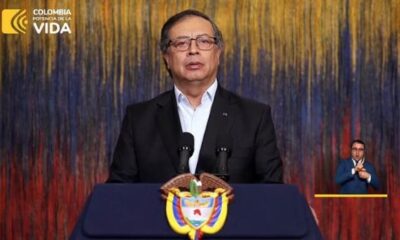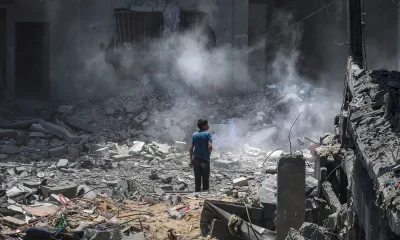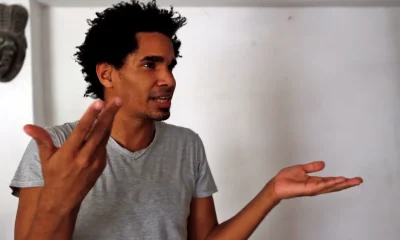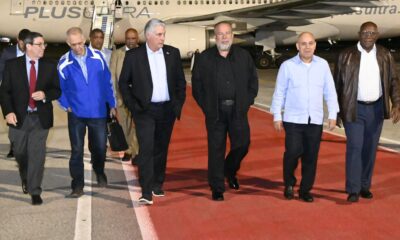International
Cuba blames the United States for the instability in the delivery of subsidized food
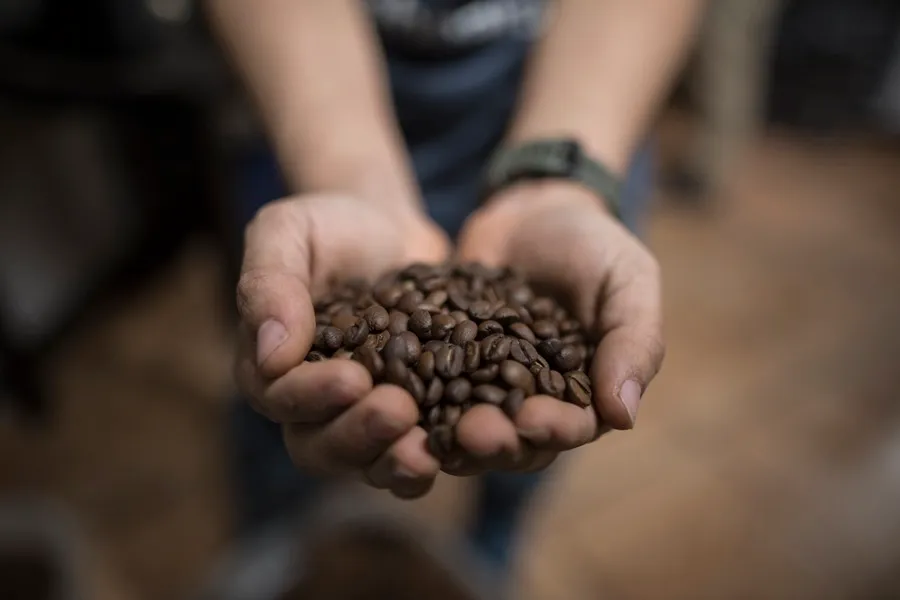
The president of Cuba, Miguel Díaz-Canel, blamed on Thursday the “regrowth” of the economic embargo of the United States for the “difficult situation” in the delivery of the subsidized products through the ration card.
The president dedicated the second broadcast of the program ‘Desde la Presidencia’ – broadcast on YouTube – to the “difficulties” in acquiring from abroad the products that are distributed in the so-called supply book, in force for more than 60 years on the island.
According to Díaz-Canel, the island government spends about 230 million dollars a month to guarantee the products – rice, coffee, sugar, beans, among others – and distribute them in the more than 12,000 wineries (local state shops located in the neighborhoods).
“It is a titanic task that the country does,” said Díaz-Canel, accompanied by the head of Internal Trade, Betsy Díaz, and the first deputy minister of Foreign Trade and Foreign Investment, Oscar Pérez-Oliva Fraga.
Díaz-Canel acknowledged that people’s opinion about the primer is “very critical and very negative,” especially due to the delays in deliveries and the decrease in quantities.
In the last 20 years, the rations that have decreased the most have been coffee and sugar, both domestically produced, according to a study recently carried out by EFE.
In this regard, Díaz stated that “the last two years have been very complex for distribution” due to “the lack of financing to pay the freight with the loads and the lack of fuel to distribute the products once they are in Cuban port.”
In this regard, the first Deputy Minister of Foreign Trade commented that “the inclusion of Cuba in the list of states that sponsors terrorism – prepared by the U.S. Department of State – has been a strong blow to the country’s finances.”
Cuba has been plunged into a severe crisis for four years, which translates into a shortage of basic products, frequent blackouts and strong inflation, in conjunction with the pandemic, the tightening of US sanctions and errors in national economic policy.
The Caribbean country spends $2 billion annually on the import of food.
Recently, Cuba formally requested milk powder from the UN World Food Program for the first time to continue subsidizing this product to children under seven years of age, according to EFE.
The Cuban authorities have assumed in recent weeks problems to produce the subsidized bread from the basic basket due to lack of imported flour.
The shortage of food was one of the triggers of the massive anti-government protests of July 11, 2021, the largest in decades, and the most recent of March 17 of this year in several cities of the country
International
DHS Secretary Kristi Noem’s Purse Stolen in D.C. Restaurant Heist

The purse of Kristi Noem, Secretary of the Department of Homeland Security, was stolen on Sunday night at a restaurant in Washington, D.C., Fox News Digital confirmed through several agency sources.
The handbag, taken by a white male wearing a mask, reportedly contained $3,000 in cash along with personal documents, including her passport, keys, driver’s license, and DHS badge, according to an agency spokesperson.
“Her entire family was in town, including her children and grandchildren. She was celebrating her retirement by treating them to dinner, activities, and Easter gifts,” the spokesperson added.
Crime continues to be a significant issue in the U.S. capital, particularly theft. However, violent crime reached its lowest level in 30 years last year, according to the Office of the Attorney General at the time.
International
Pope Francis: The Quiet Architect Behind the U.S.-Cuba Thaw
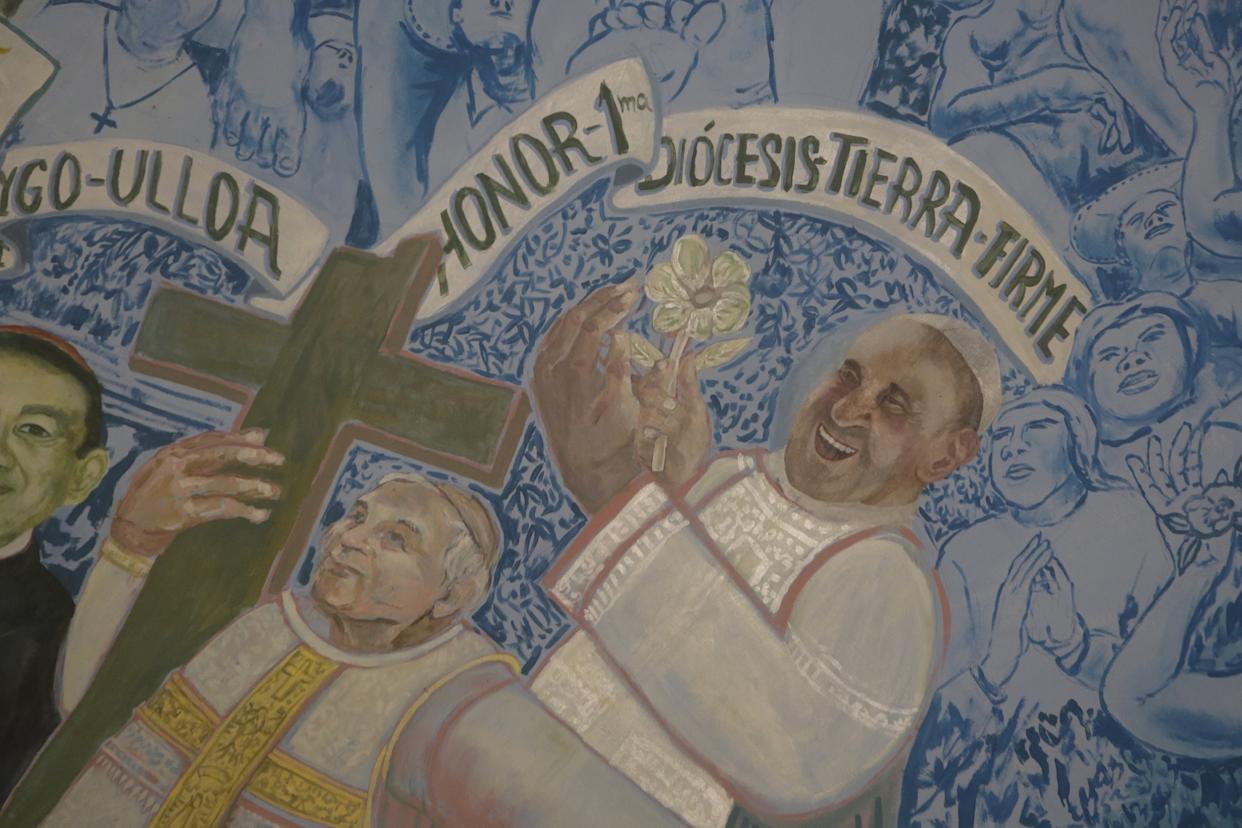
When then-U.S. President Barack Obama and Cuban President Raúl Castro announced the reestablishment of diplomatic relations in December 2014—after decades of hostility—there was a third figure present in both speeches: Pope Francis.
This thaw in U.S.-Cuba relations—later reversed by Donald Trump—was the result of behind-the-scenes negotiations personally encouraged by Pope Francis, who passed away on Monday at the age of 88, just over a year after becoming head of the Catholic Church.
Upon learning the news of the breakthrough, the pontiff humbly stated, “This was made possible thanks to the ambassadors and to diplomacy,” which he called “a noble, very noble job.”
In 2015, months after the announcement, Raúl Castro visited the Vatican and met with the pope. Over time, Castro developed a fondness for Francis that he never had for his predecessors, Benedict XVI and John Paul II. “If the Pope continues talking like this, sooner or later I’ll start praying again and return to the Catholic Church—and I’m not joking,” said the younger Castro, who, like his brother Fidel (1926–2016), had been educated by Jesuits—the same order to which Pope Francis belonged.
Pope Francis visited Cuba later that year. Just days before his arrival, the Cuban government announced the pardon of 3,522 common prisoners as an act of clemency.
While in Havana, the pope met with Fidel Castro, who gave him a first edition of the book Fidel and Religion by Brazilian friar and liberation theologian Frei Betto.
Criticism from the Opposition
Francis’s diplomatic approach also drew criticism from parts of the Cuban opposition. In a 2022 interview with Univision, the pope revealed he had “a human relationship” with Raúl Castro.
International
Dominican Republic Declares Three Days of Mourning for Pope Francis

Dominican Republic President Luis Abinader has declared three days of national mourning starting Tuesday following the death of Pope Francis, who passed away on Monday at the age of 88 in his residence at the Casa Santa Marta.
In an official decree, Abinader highlighted the pope’s legacy “as a global leader who promoted significant reforms within the Catholic Church and was known for his humility, openness to dialogue, and commitment to peace among nations.”
During the mourning period, the national flag will be flown at half-staff at military facilities and public buildings.
According to a statement from the Office of the Presidency, although Pope Francis never visited the Dominican Republic during his papacy, he maintained a close relationship with the country. He expressed solidarity and empathy during difficult times, including offering prayers for the victims of the recent tragedy at a Santo Domingo nightclub on April 8, which claimed 232 lives and left more than 180 injured.
-

 Central America5 days ago
Central America5 days agoNicaraguan Exiles to Mark 7th Anniversary of 2018 Protests with Global Commemorations
-

 International5 days ago
International5 days agoDominican ‘False Hero’ Arrested for Faking Role in Nightclub Collapse That Killed 231
-

 Central America4 days ago
Central America4 days agoUN complaint filed against Costa Rica over detention of migrant children
-

 International4 days ago
International4 days agoACLU seeks emergency court order to stop venezuelan deportations under Wartime Law
-

 Central America2 days ago
Central America2 days agoSenator Van Hollen Meets with Deported MS-13 Member in El Salvador; Trump and Bukele React
-

 International3 days ago
International3 days agoThousands rally nationwide against Trump’s threat to U.S. democracy
-

 International2 days ago
International2 days agoPope Francis Appears for Easter Blessing, Calls for Peace and Religious Freedom
-

 Central America19 hours ago
Central America19 hours agoCardinal Rodríguez to Attend Funeral of Pope Francis: “He Was Very Dear to Me”
-

 Central America19 hours ago
Central America19 hours agoNicaragua’s Ortega and Murillo Mourn Pope Francis, Acknowledge ‘Difficult’ Relationship
-

 International19 hours ago
International19 hours agoDominican Republic Declares Three Days of Mourning for Pope Francis
-

 International19 hours ago
International19 hours agoDHS Secretary Kristi Noem’s Purse Stolen in D.C. Restaurant Heist
-

 International19 hours ago
International19 hours agoPope Francis: The Quiet Architect Behind the U.S.-Cuba Thaw














